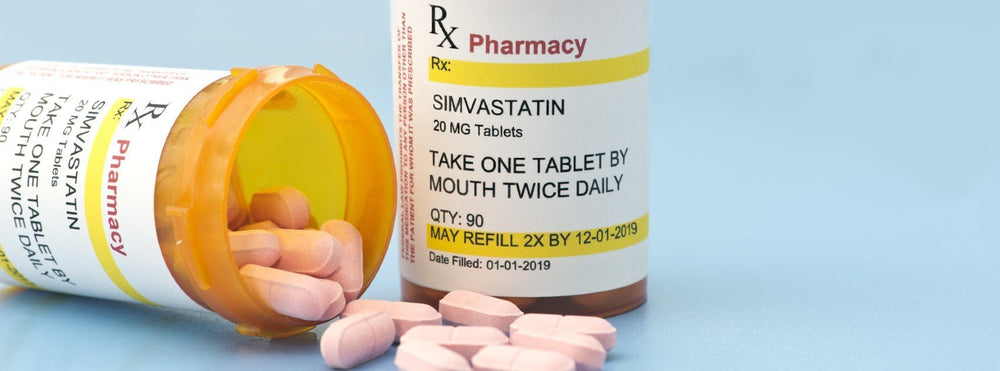What I tell my patients: Who should be on statins

I may have started a company that makes food to help lower cholesterol, but that doesn’t mean I don’t prescribe statins. In fact, I do it all the time. Because some people SHOULD be on these drugs. However, I only prescribe medications when the indication is clear - and always with the caveat that drugs alone are an incomplete solution.
There are 4 main categories of patients in whom guidelines dictate that statins should be utilized:
- Those with known heart disease (like prior heart attack, stroke, bypass surgery, stent etc.).
- Those with diabetes (who are at least 40 years of age).
- Those with familial hypercholesterolemia (genetically driven very high LDL, typically defined as an LDL at or above 190 mg/dL)
- Those with a calculated 10 year risk of experiencing heart disease that exceeds 7.5%.
A couple of these categories are no brainers. The data is really strong and consistent that statin medications significantly reduce risk of heart events in patients with established heart disease and in those with diabetes regardless of starting LDL value. Remember, we don’t put people on drugs to make numbers look good. We put people on medications to positively impact outcomes. The LDL number is just a proxy for how much we are reducing risk. And not all risk benefits of statins come from cholesterol reduction alone.
And although many patients come to see me because they want to avoid medications or get off of statins, if you have established heart disease, I will work hard to keep/put you on them…forever. In patients with diabetes, which can be reversed with lifestyle change, I always leave the door open for discontinuing the statin if the diabetes goes away.
LDL levels of 190 mg/dL are typically driven at least in part or in whole by genetics, but I’ve seen significant LDL drops in those with high starting numbers with lifestyle change alone. Just last week a patient surprised even me by dropping her LDL from 285 mg/dL to 169 mg/dL simply by adjusting her diet! Yes, you read those numbers right. And yes, I did mean LDL. And this didn't take years - she accomplished this within a couple of months. So in patients with elevated LDL as an isolated finding, I avoid prescribing statins until we’ve tried a concerted lifestyle change for at least 3 months. And if significant improvements occur within that time period, I keep going with lifestyle change and periodic cholesterol checks until we've reached a plateau - and then decide if statins are required.
That 7.5% risk-based category is the one I’m least excited about -- and typically ignore. Because the risk calculator is in many ways flawed. It uses population data about heart disease risk and attempts to apply it to individuals. And it’s highly weighted for age – but doesn’t consider family history. So a healthy 70 year old woman without any risk factors for heart disease and exceptional healthy longevity in her family is a statin candidate (with normal cholesterol levels), while a 45 year old man who recently quit smoking, is overweight, has an LDL of 170 mg/dL and whose every male relative died at 50 from a massive heart attack goes statin free.
When people fall into category #4 – and a lot of people do - I really try to be thoughtful about whether or not to get out my prescription pad. By considering the whole person and their health goals. So if you’re in my office because the risk calculator says you should be, I will go over everything you can do to lower your risk from every angle – not just cholesterol. And in some cases will check a coronary calcium scan to obtain a more individualized assessment of heart disease risk.
And, because it bears repeating, whether I prescribe statins or not, I always emphasize the importance of diet. Food can help lower cholesterol, independently reduce heart disease risk and also help statins work better – meaning you will need lower doses to control your readings thus reducing the likelihood of statin-related side effects.
Read the rest of the 6 part blog series "What I Tell My Patients":

Tested & Proven Results.
- Cardiologist formulated
- Supported by over 500 publications
- Clinically-proven, in a double-blind randomized trial with Mayo Clinic and The University of Manitoba
80% of participants lowered their cholesterol in just 30 days. With just two servings per day, Step One Foods offers a proven-effective way to naturally lower LDL (bad) cholesterol.
Get heart health tips and articles like this, delivered right to your email.
New articles every week.
You may also like...

You don’t need to avoid foods with cholesterol…except for these




